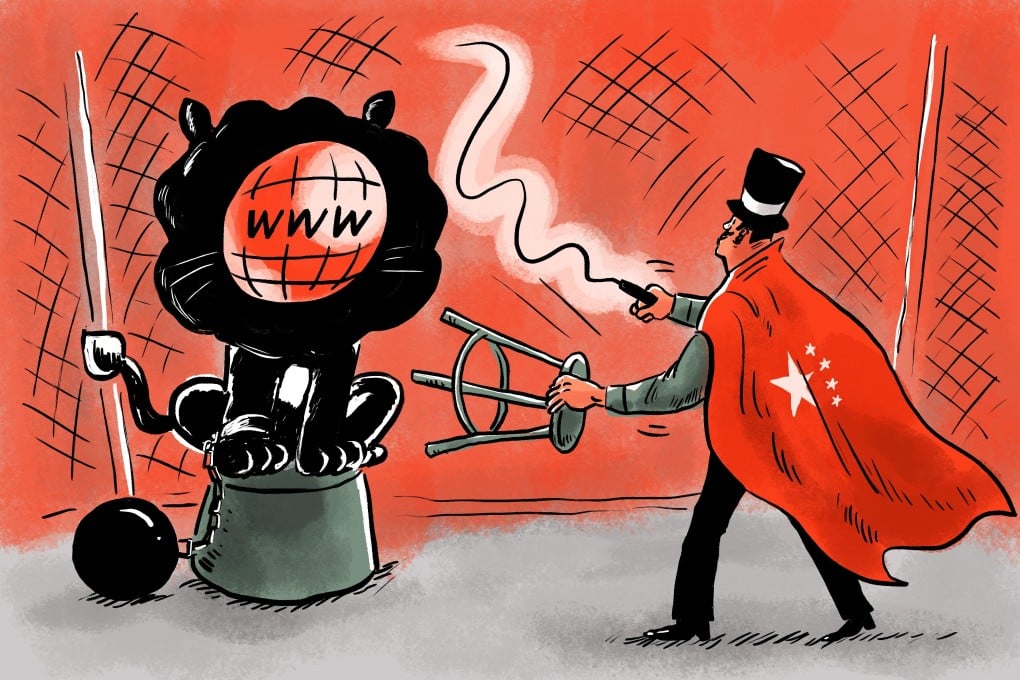China’s internet was hailed as a path to democracy but the Communist Party reshaped it in its own image
- The internet age has brought a sense of community for Chinese citizens but also greater surveillance and more control for the party
- President Xi Jinping saw a need to control the power of the internet and a use for digital tools to take China’s message to the world

The Chinese government has made technology and innovation key priorities in its development plans for the next five years, as it strives to build a “Digital China” and overtake the US as the world’s No 1 economy. In this first part of a series looking at the politicisation of China’s internet landscape, we explain how the Communist Party gained and retained a tight grip on the online sphere, defying early expectations from the West.
“There’s no question China has been trying to crack down on the internet,” he said. “Good luck. That’s sort of like trying to nail Jell-O to the wall.”
There were 22.5 million internet users in China in early 2001. By last year, that figure had ballooned to 989 million – more than three times the entire population of the United States and exceeding the 639 million internet users in India, according to the state-run China Internet Network Information Centre.
And “nailing Jell-O to the wall” is something the nation, which now accounts for about a fifth of the world’s internet users, seems to have excelled in.